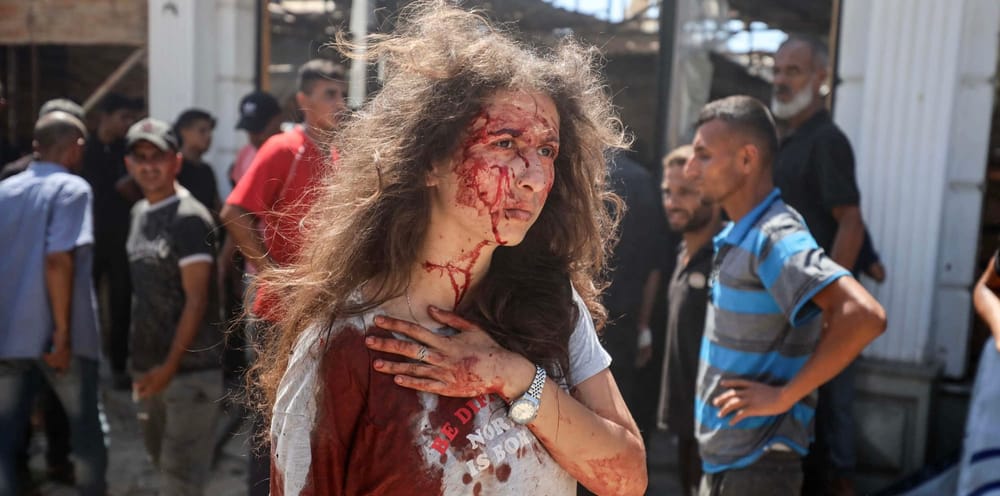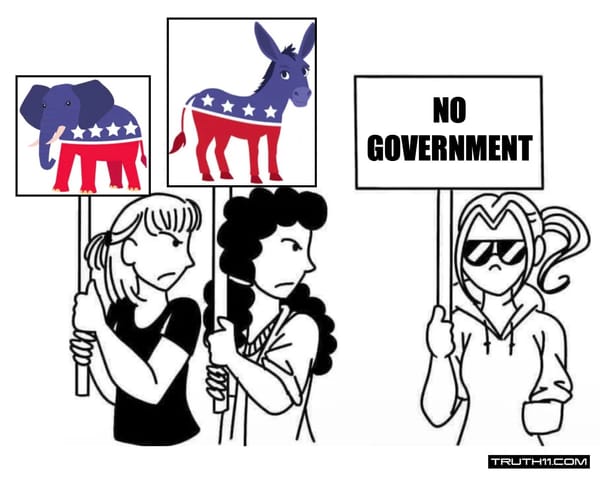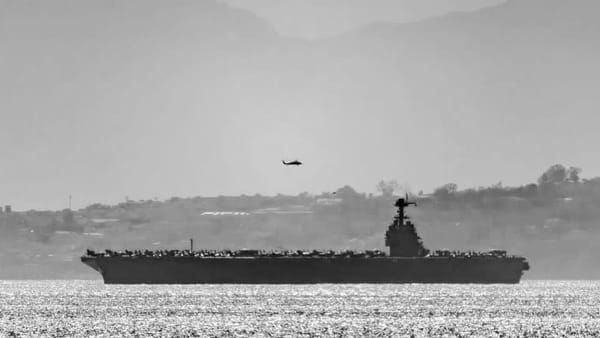“I Said Good Morning to the Dead”: Inside the Al-Baqa Cafe Bombing

Survivors of the Al-Baqa Cafe bombing in Gaza, and the loved ones of the dead, share their stories of the Israeli attack.
TheIntercept.com
Huda Skaik, Hamza Salha
On the evening of June 30, an Israeli warplane dropped a 500-pound, U.S.-made MK-82 bomb on the seaside Al-Baqa Cafe in Gaza City. The explosion killed more than 30 people and injured dozens more.
The weapon’s wide blast radius in the dense neighborhood caused indiscriminate damage, affecting unprotected civilians including men, women, children, and the elderly. Legal experts have said the attack likely violated international law under the Geneva Conventions and may constitute a war crime.
As the war grinds on, cafes like Al-Baqa aren’t just social spaces; for many, they are the only places to access electricity and the internet, which are often unavailable in people’s homes due to the ongoing blockade and widespread destruction of civilian infrastructure.
The people killed were students, workers, journalists, and displaced civilians, all clinging to a sense of normalcy, waiting for news of a possible ceasefire. Each had a name, a story, a struggle for survival in the face of a war that spares no one.
For the dead, the ceasefire will never come. Here are some of their stories.
“Please Be Okay. Don’t Leave Me.”

Ola Abed Rabbu, a 23-year-old engineer, had recently gotten engaged to Naseem Sabha, 28 — a man who, in her words, “chose to accompany me through the war, to ease my pain and bring light into my darkness.”
That evening, like always on their weekly excursions together, Naseem sat beside her, radiant with joy. “He was like a child reunited with Eid after a long absence,” Ola recalled. He took photos of them together, his heart brimming with happiness as he whispered to her how beautiful she was — and how beautiful they were. “He never saw anything in this world more worthy of celebration than us.”
They ordered coffee and falafel sandwiches, laughing between sips and bites, she said. The cafe buzzed with activity — people reading, charging phones, attending online classes, catching a flicker of normalcy. Time passed quickly, as it always did during rare peaceful moments in Gaza. But even their long list of postponed conversations would have needed “two lifetimes” to complete.
“He held my hand tightly on the way, like it was his last homeland,” Ola said. “And whenever we had to speak of death, he would always tell me calmly: ‘Don’t be afraid. Don’t be sad. As long as we are together, if we go … we go together.’”
But there was no warning. No siren. Only a sudden explosion. The cafe turned into rubble and dust. Screams faded into silence — broken only by Naseem’s pained whisper:
“Ah … ah …”
They collapsed.
Ola’s leg was torn and bleeding. She wrapped it with a cloth from the table and crawled toward Naseem. “Please be okay. Don’t leave me. Stay alive,” she begged him. Blood poured from his back, but she clung to the hope that he had only lost consciousness.
He was rushed to the ambulance first. Ola, despite her injuries, followed in the next. She arrived at the hospital unable to walk, her foot ligaments severed. “They told me he had a metal rod placed in his leg, then moved him to another ward,” she recounted.
As her treatment began, Ola asked her father in desperation, “Is Naseem okay? Please, tell me he’s alright.”
His voice trembled: “I don’t know. He’s in the ICU. … We’re not allowed to see him.”
The silence around her grew heavier. Hours passed. Eventually, her cousin arrived and placed a hand on her shoulder.
“Has he been martyred?” Ola asked.
Tears filled her cousin’s eyes as she nodded. “Yes … we brought him to you … to say goodbye.”
She saw his body, peaceful and luminous — “more beautiful than the full moon,” she whispered. “His face was calm, as if he hadn’t felt any pain, his spirit still hovering near him.”
With quiet faith, Ola bid him farewell:
“O Allah, reward me in this great loss, and grant me better than him. I testify that he was worthy of martyrdom. I have never known a heart more tender, a soul more pure, or a love more merciful and kind. I entrust him to You, my Lord … until I meet him again.”
“She Wasn’t Just My Cousin. She Was My Little Sister.”

Haya Jouda, 23, speaks of her cousin Mona, 21, as a sister. “We grew up together — all my memories have her in them,” she said.
Mona and her friend Raghad Abu Sultan, 21, had gone to the cafeteria simply to breathe. Mona was known in the family as the youngest and most adored; she had a spirited presence and a generous heart. “She was the baby of the family. Everyone called her ‘Bobo.’ Even her older brothers spoiled her,” Haya told The Intercept.
Mona studied engineering at Al-Azhar University and was fluent in English. Despite the war, she continued volunteering with organizations that supported orphans, and later, during the siege, worked with the charity group Fares Al-Arab. “She loved helping people. She hated sitting still,” Haya said.
When their home was destroyed in November 2023, the extended family fled together to Deir al-Balah, sharing a single room for six months. Haya eventually managed to evacuate to Egypt, but Mona couldn’t — even though she had packed first, full of hope her name would be called. “She hugged me the day I left and cried,” Haya recalled. “She said she’d follow me soon. She even packed her bag.”
The Rafah crossing closed, and Mona remained in Gaza. Despite everything, she stayed strong for others. “She was the one comforting me,” said Haya. “Telling me things would be okay — even though she was the one under bombs.”
When the first ceasefire took effect in February 2025, Mona returned with her family to their destroyed apartment in the north. “She was so happy to be home, even if the house was bombed,” Haya said. “She told me, ‘At least I’m in my house. That’s what matters.’”
On the day of the cafe strike, Mona had gone out with her friend Raghad — a rare attempt at normalcy. When news broke of the bombing, the family didn’t even realize Mona had been there. Her father searched for her frantically. “He said, ‘We’re okay — but I can’t find Mona.’ We thought she had just stepped out or gone to the bathroom.”
When Raghad’s name appeared on the list of the dead, everything changed. “We knew,” Haya said. “They were always together. We just didn’t want to believe it.” Later that evening, the final confirmation came. Mona had been killed. “Her mother saw her body, bid farewell and cried, ‘Mona’s gone. Her soul is gone.’ The phone dropped from her hand.”
The news shattered the family, now scattered across different countries. “None of us were with her. None of us got to say goodbye. She died without us.”
Haya still struggles with the reality of her cousin’s death. “She was the funny one. The one who got the joke first. She had this lightness about her,” she said. “And now she’s just … gone. Killed in a war she didn’t choose, while trying to live.”
“She wasn’t a number,” Haya added. “The world won’t wake up just because Mona is gone — but there are so many like her. So many families were destroyed. And we’re still counting.”
For Aseel Balaawi, 21, now living in Egypt, the loss struck from a painful distance. Raghad was her classmate since sixth grade — a source of ambition and quiet strength. Both were studying pharmacy, dreaming of leaving a mark on their homeland. “Most of our conversations were about our major, since we were both in the Faculty of Pharmacy. We always used to talk about how we could leave a mark for Palestine,” Aseel said.
Aseel didn’t know Raghad and her best friend Mona were there at Al-Baqa Cafe at the time it was hit by an Israeli airstrike. “When I saw a story from my colleague on Instagram saying ‘pray for Raghad,’ I thought — it can’t be true. But unfortunately it was.”
The disbelief morphed into a crushing realization. “The idea that someone with so much life and passion as Raghad could be gone — it broke my heart,” Aseel said. “To this day, I can’t get over Raghad’s killing. I write about her in my journals, so I can keep her memory alive.”
“She Held on To Everything Good Until the Last Moment.”

Mariam Salah, 30, knew Amna Al-Salmi, 36 — a fellow digital artist known to many by her childhood nickname “Frans” — through her work in Gaza. Mariam remembers Frans as a quiet force of ambition, talent, and discipline. They both lived in Al-Shati refugee camp.
“She wasn’t just a good artist,” Mariam recalled. “She was a dreamer. Always talking about traveling, building a career, and leaving her art supplies to her sisters if she ever got the chance to go.”
Frans worked in digital art and had recently been collaborating on a visual storytelling project called ByPal with the journalist Ismail Abu Hatab, 30, who was killed with Frans. The project sought to document personal stories through illustration — a form of collective resistance and memory-making. Mariam believes that work is what brought Frans and Ismail to the cafe on the day of the strike.
Mariam and Frans had met just a week or two earlier, when they painted together at a public event that included a mural titled “Honoring the Donkey,” a satirical piece. “That might have been her last public work,” Mariam said. “We took a group photo. I hugged her in it. I remember complimenting her eyelashes — they were so long. It was just a small moment, but now it feels enormous.”
When the bombing hit the cafe, Mariam was at home. It was her sister who called, asking urgently if she had been there, knowing that many artists — including Ismail and Frans — had been frequenting the place. “I opened my phone and the first name I saw was Ismail’s. The sight of him broke me,” Mariam said. “And I immediately thought — if he was there, she was too.”
Mariam tried calling Frans. No answer. Someone eventually picked up her number, found in her lost SIM card, and confirmed what she feared: Frans was killed. “He didn’t even know her,” she said. “Just someone who’d been at the scene.”
Though Mariam had lost many people in the war — including her 4-year-old nephew Ahmed, who had been like a son — Frans’s death struck a different kind of blow. “There was something about her,” Mariam said. “She was calm, beautiful, composed. Even in the worst circumstances, she’d show up dressed well, taking care of herself, holding on to whatever color she could find in this black-and-white world. Her killing reminded me of Mahasen Al-Khateeb, our mutual artist friend who was killed months ago.”
Frans had posted only days earlier about how much she missed painting. Her last artworks included children in shrouds — images that now feel eerily like foreshadowing.
“She held on to everything good until the last moment,” Mariam reflected. “She had so much hope. She didn’t like sharing her pain. But she carried a lot — and she never let it take her light.”
“Do You Think It Knows We’re Just Innocent People Trying To Live?”

Survivor Mohammad Naeem, 23, a law graduate from Beit Hanoun, was inside Al-Baqa that day.
That afternoon, Mohammad sat at his favorite table along with his friend, poised to capture the Gaza sunset and enjoy the beauty of the sea. His friend broke his concentration by pointing to a naval warship on the horizon and asked, “Do you think it knows we’re just innocent people trying to live?”
Before Mohammad could finish his answer, a force that felt like it was ripping his soul out of his body pulled him five meters away. “In that moment, all sounds vanished — there was nothing left but one steady, fixed sound, like the static hum of a lost TV signal,” he continued. “I hit the ground, and all emotions disappeared. Even fear — I didn’t feel it. I couldn’t process what had just happened to react emotionally. All I could see was a single scene, playing out in slow motion.”
“I tried to get up,” he said. “But I wasn’t even aware I was injured. I just saw my friend’s leg — barely attached — and I carried him. I had to.” Only later, after he had delivered his friend to an ambulance and collapsed himself, did he realize he was wounded too.
Mohammad’s physical recovery is ongoing, but the psychological wounds cut deeper. “After this, I no longer feel safe anywhere,” he said. “Before, I used to tell myself, ‘Don’t worry, you avoid risky places.’ But now … nowhere feels safe, even the sea.”
“I Said Good Morning to the Dead.”

On the morning of June 30, journalist Bayan Abusultan went to the cafe. “I went for a moment of fake peace,” she recalled. “To breathe. To feel normal, even if just for an hour.” She exchanged greetings with the staff and familiar faces, including Frans and Ismail Abu Hatab, who were filming a segment for an upcoming exhibition.
The cafe buzzed with life. Three young women sat nearby, exchanging quiet smiles and compliments. Across from Bayan sat two girls in their early twenties with a giant gift-wrapped teddy bear beside them — a peace offering to reconcile after a recent argument. They had just made up. Bayan flipped open her book, a literary critique by Abd el-Rahman Munif, reading about the power of cultural memory, the legacy of writers like Ghassan Kanafani, and the weight of identity under occupation.
It was nearly 2:45 p.m. when her friend Mohammed Abu Shammala arrived. They hadn’t seen each other for two months, and she closed her book to talk. She pointed toward the sea.
“The warships are really close today,” she said. But they brushed it off. In Gaza, everything can seem routine — until it isn’t.
When the sudden blast ripped through the cafe, Bayan was thrown to the ground. She crawled under a table for cover, and her friend Mohammed shielded her from the shrapnel. When she lifted her head, she saw a severed leg, a young woman dying beside her, and her friends Frans and Ismail lifeless at the table where they had just been smiling. The familiar cafe had become a war zone.
Disoriented and injured, Bayan stumbled through the debris, searching for her phone to call an ambulance. Only when someone pointed out the blood on her head did she realize she had been wounded. She was led toward emergency responders. Each step became heavier, not because of her wounds, but because of what she saw: bodies of people she had said “good morning” to just hours earlier. She felt the helplessness of someone who couldn’t save the ones they love.
Image: Journalist Bayan Abusultan walks away, injured, from Israel's attack on the Al-Baqa Cafe in Gaza City, on June 30, 2025. Photo: Majdi Fathi/NurPhoto/Getty Images
Original Article: https://theintercept.com/2025/07/17/i-said-good-morning-to-the-dead-inside-the-al-baqa-cafe-bombing/




Comments ()